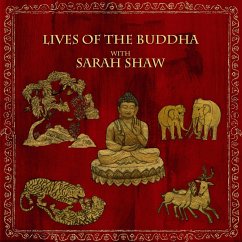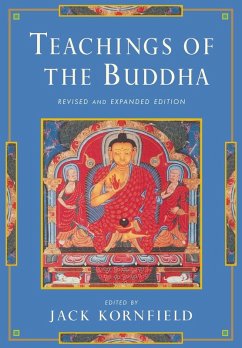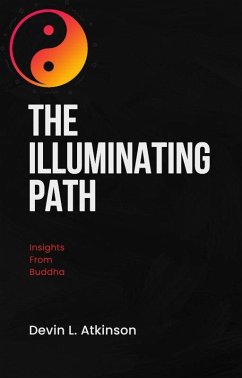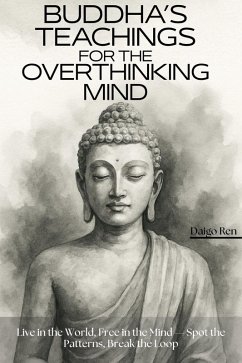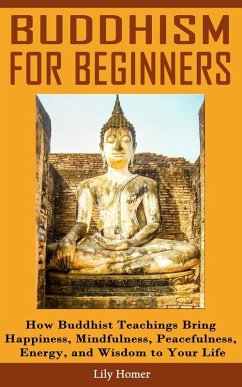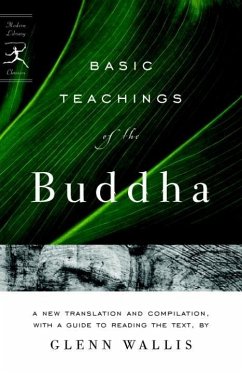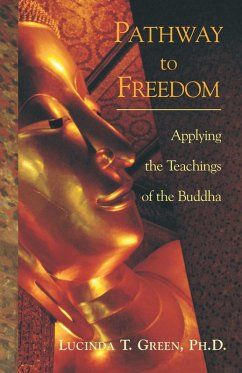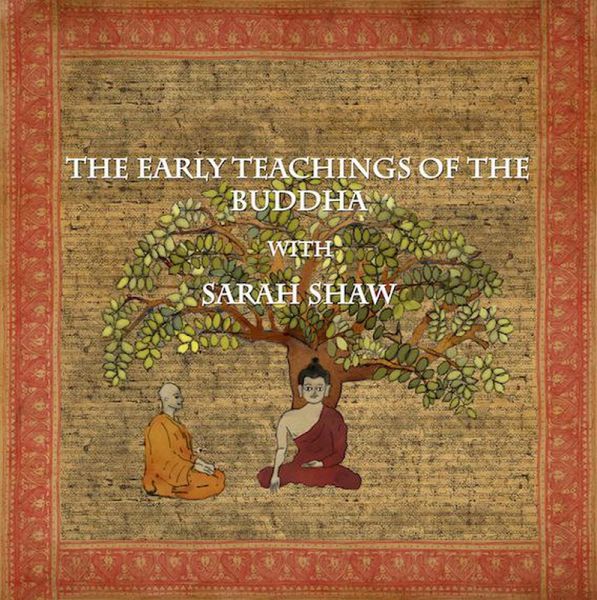
The Early Teachings of the Buddha with Sarah Shaw (Buddhist Scholars, #3) (eBook, ePUB)

PAYBACK Punkte
0 °P sammeln!
This lecture series with Sarah Shaw looks at several texts in the Pali Canon from the Digha Nikaya, the "collection of long discourses". Sarah explores the Buddha's teachings on subjects including meditation, ethics, meditative states and conditionality. This series is an excellent foundation for understanding the underpinnings of all Buddhist philosophy.The discourses are set within narratives of the Buddha's life. These texts have varied genres designed to have different effects. They range from prescriptive ways to apply the practice, to evocative imagery that symbolises the teaching, to et...
This lecture series with Sarah Shaw looks at several texts in the Pali Canon from the Digha Nikaya, the "collection of long discourses". Sarah explores the Buddha's teachings on subjects including meditation, ethics, meditative states and conditionality. This series is an excellent foundation for understanding the underpinnings of all Buddhist philosophy.
The discourses are set within narratives of the Buddha's life. These texts have varied genres designed to have different effects. They range from prescriptive ways to apply the practice, to evocative imagery that symbolises the teaching, to ethical recommendations about how to act in the world. This course explains the context and background of these timeless teachings.
Session 1: Sarah gives an overview of the course. She offers a historical and cultural background for the early suttas and discusses some of the key teachings in Buddhist philosophy including the four noble truths and the eightfold path.
Session 2: Samaññaphala-Sutta: The Fruits of the Contemplative Life - Through the story of King Ajatasattu's visit to see the Buddha we are introduced to the stages of meditative absorption, the jhanas.
Session 3: Mahasatipatthana-Sutta: The Great Discourse on the Establishing of Mindfulness - Sarah covers the four foundations of mindfulness in this, one of the most famous, important and most widely studied texts in the Pali Canon.
Session 4: The Mahasamaya-Sutta, a very popular ceremonial text, and the Mahasudassana-Sutta, a visualization of the 'palace' in the 'city' of the mind, ruled by a great king, the Buddha in an earlier life as Bodhisattva.
Session 5: The Sangiti-Sutta - Sariputta, one of the Buddha's chief disciples, gives a talk listing the principles of the Buddha's teaching.
Session 6: The Sigalovada-Sutta - The Buddha instructs a young man on how to live an ethical life.
Session 7: The Mahanidana-Sutta - The Great Causes Discourse - In this session Sarah explains this key text on the principle of dependent origination.
The discourses are set within narratives of the Buddha's life. These texts have varied genres designed to have different effects. They range from prescriptive ways to apply the practice, to evocative imagery that symbolises the teaching, to ethical recommendations about how to act in the world. This course explains the context and background of these timeless teachings.
Session 1: Sarah gives an overview of the course. She offers a historical and cultural background for the early suttas and discusses some of the key teachings in Buddhist philosophy including the four noble truths and the eightfold path.
Session 2: Samaññaphala-Sutta: The Fruits of the Contemplative Life - Through the story of King Ajatasattu's visit to see the Buddha we are introduced to the stages of meditative absorption, the jhanas.
Session 3: Mahasatipatthana-Sutta: The Great Discourse on the Establishing of Mindfulness - Sarah covers the four foundations of mindfulness in this, one of the most famous, important and most widely studied texts in the Pali Canon.
Session 4: The Mahasamaya-Sutta, a very popular ceremonial text, and the Mahasudassana-Sutta, a visualization of the 'palace' in the 'city' of the mind, ruled by a great king, the Buddha in an earlier life as Bodhisattva.
Session 5: The Sangiti-Sutta - Sariputta, one of the Buddha's chief disciples, gives a talk listing the principles of the Buddha's teaching.
Session 6: The Sigalovada-Sutta - The Buddha instructs a young man on how to live an ethical life.
Session 7: The Mahanidana-Sutta - The Great Causes Discourse - In this session Sarah explains this key text on the principle of dependent origination.
Dieser Download kann aus rechtlichen Gründen nur mit Rechnungsadresse in A, B, CY, CZ, D, DK, EW, E, FIN, F, GR, H, IRL, I, LT, L, LR, M, NL, PL, P, R, S, SLO, SK ausgeliefert werden.




